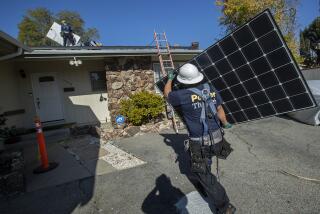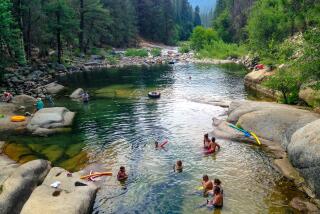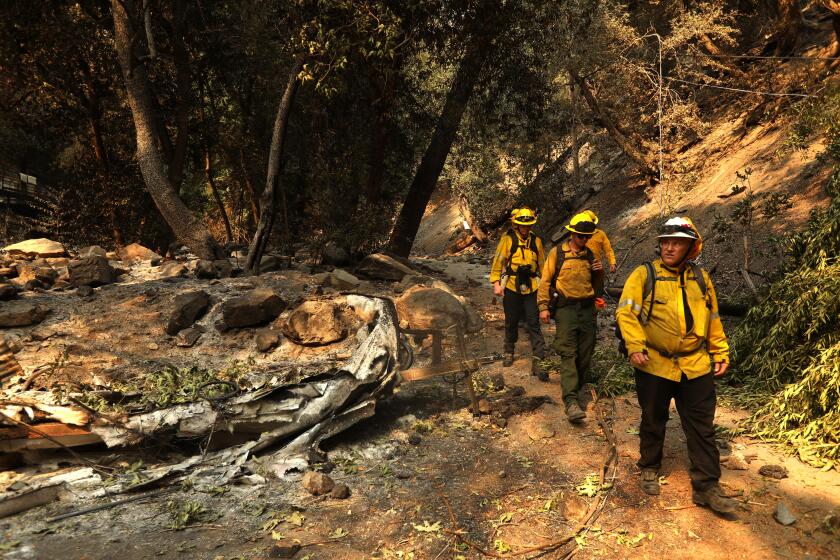Now’s the time for a Canadian vacation — the U.S. dollar is strong and deals are everywhere

The Sunken Garden, Vancouver Island, British Columbia, Canada.
If you’re a bargain hunter and you’re not hopping on the Canadian vacation bandwagon, perhaps you haven’t realized what the Canadian dollar is worth in greenbacks these days.
“It’s like everything is 30 or 40% off,” said Kate Colley, a spokeswoman for the Four Seasons Hotel Vancouver, British Columbia. “You can go up a level in hotels, add the massage, eat at a fine restaurant, do the tasting menu. It’s that level of feeling flush” for U.S. tourists.
The Canadian currency is at a 12-year low, pushed down by that country’s slow economic growth and dropping oil prices. In the United States, meanwhile, the dollar rallied last year and has continued to remain strong. One U.S. dollar gets you about 1.33 Canadian dollars.
Plus you’ll find some great deals to be had because Canada is eager for tourist dollars.
Dr. Brad Keeler, a surgeon based in Loveland, Colo., spent a few days in February skiing with friends in Whistler, British Columbia.
He estimated that this year’s Canadian weekend saved him $500 to $600 from the usual weekend trip. In years past they have gone to Lake Tahoe, Vail, Colo., and helicopter skiing in Nevada.
In Whistler, he would look at a menu or price tag and his first thought was that the cost was “reasonable,” but once he converted it to U.S. dollars, “I’d think, ‘Oh, wait. That’s a bargain,’” he said.
Here are a few tips that can help travelers maximize their savings.
— There is a 5% goods and services tax, or GST, on most items in Canada, including hotel and restaurant bills. That can be avoided, however, if you live in the United States and a merchant is willing to ship your souvenirs to you.
— When deciding where in Canada to vacation, remember that some provinces and territories have their own sales taxes. The cumulative tax on most things is 5% in Alberta, the Yukon, Nunavut and the Northwest Territories; 10% in Saskatchewan; 12% to 13% in British Columbia (there’s an extra 1% on most hotel rooms); 13% in Manitoba, New Brunswick, Newfoundland and Labrador, and Ontario; 14% in Prince Edward Island; and 15% in Quebec and Nova Scotia.
Similarly, some areas in Canada have a municipal or regional tax, and potentially a lodging tax or marketing fee.
On hotel rooms, that can add up to an extra 3% in British Columbia and 4% to 7% in Alberta.
It may sound as though there is the potential for a lot of added costs, but it’s not dissimilar to hotel room taxes in many U.S. destinations. Even so, travelers from the United States can still realize a savings.
For instance, a weekend in April at the Four Seasons in Vancouver is available for U.S. $776 ($1,034 Canadian), including taxes and fees, compared with $2,230 for that same weekend at the Four Seasons Hotel in Beverly Hills.
Those same dates at the Fairmont Palliser Hotel in Calgary, Alberta, would cost U.S. $270 ($360 Canadian) for the weekend, versus $1,060 at the Fairmont Miramar Hotel in Santa Monica.
Two plane tickets from Los Angeles to either Calgary or Vancouver would add about $450 to the cost of the weekend.
The $805 Calgary trip, including airfare, would save close to 20% over the Santa Monica visit. The Vancouver trip would total about $1,300, a savings of nearly 40% over a local stay.
“American visitors, American dollars, are very welcome in Canada,” Colley said.
More to Read
Sign up for The Wild
We’ll help you find the best places to hike, bike and run, as well as the perfect silent spots for meditation and yoga.
You may occasionally receive promotional content from the Los Angeles Times.






